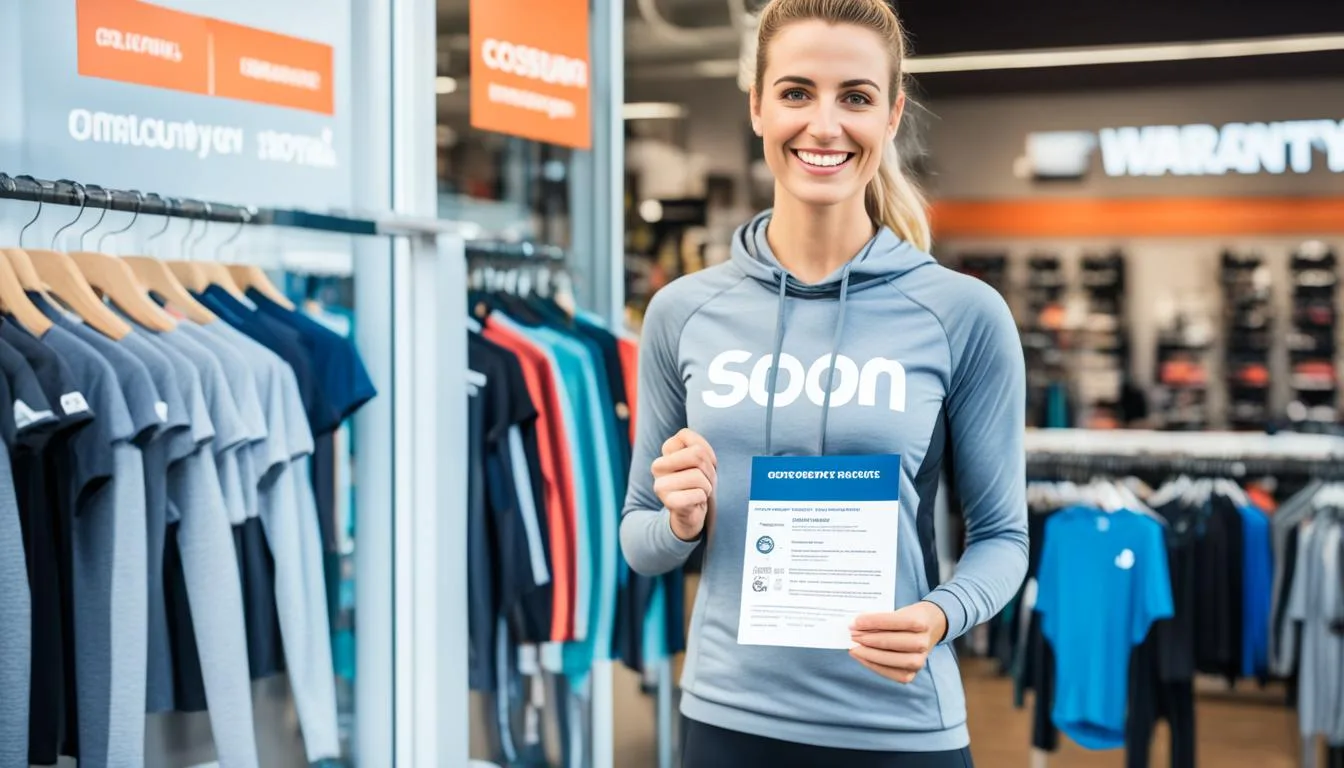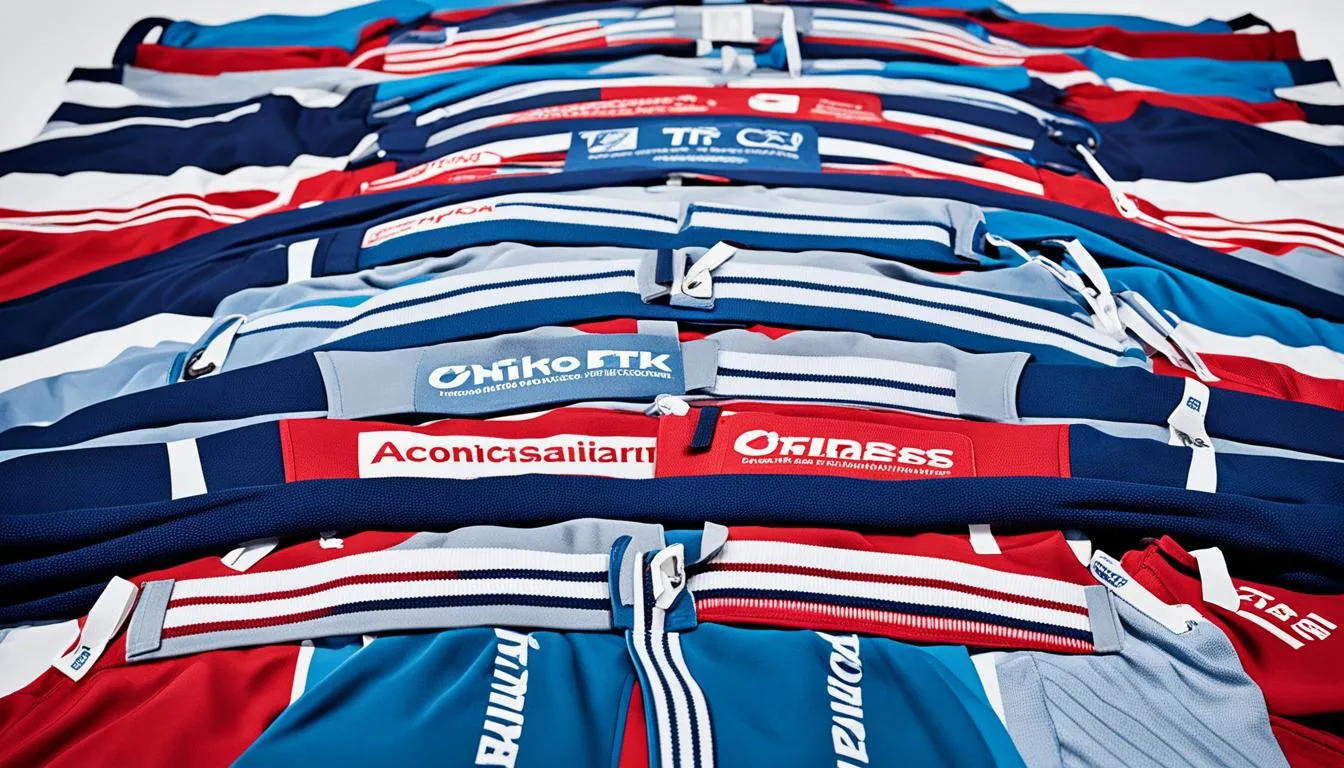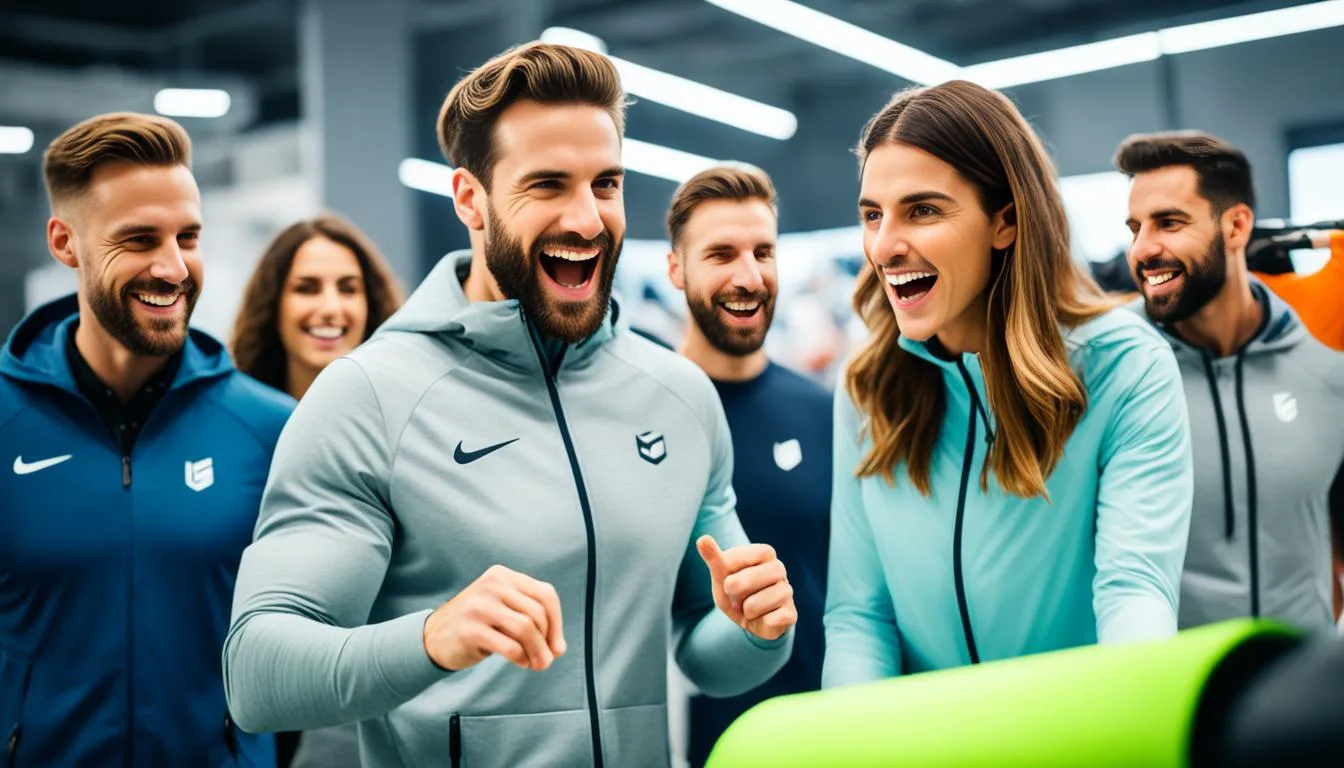Using AI to Personalize Fashion and Enhance Shopping Experiences
Connect With Us Today
Consider us for your next production run. Why wait? Send us your questions here.
We have seen a big change in how AI affects fashion and shopping. Artificial intelligence in retail has changed how we buy things. It makes shopping feel like a two-way conversation. Now, AI helps make fashion fit each person’s style and needs.
Our work with AI aims to make online shopping better and more personal. It moves people beyond just buying. This lets them enjoy a shopping experience that truly understands them.
Key Takeaways
- AI transforms the fashion industry by personalizing the shopping experience according to consumer behavior.
- Artificial Intelligence in retail provides real-time product recommendations and forecasting for enhanced customer satisfaction.
- AI-driven fashion customization allows for virtual try-ons and smart inventory management, saving time and reducing waste.
- Luxury brands are employing AI to refine customer service and safeguard their brand with counterfeit detection.
- AI technologies’ ethical deployment, with a focus on data privacy and bias prevention, is paramount in customer trust.
The Role of Artificial Intelligence in Retail Personalization
In the luxury retail world, AI-powered fashion personalization is key. It leads the way in providing top-notch customer service and boosting sales. By using Artificial Intelligence, we create unique shopping experiences for every customer.
Tailored Shopping Recommendations Based on Consumer Behavior
Personalized shopping recommendation algorithms use AI to match fashion to individual tastes. Brands like Louis Vuitton and Gucci have seen success with this, using LV’s Virtual Advisor and Gucci’s algorithms. These methods understand consumer preferences, leading to higher satisfaction and engagement.
Real-Time Adaptation and Responsiveness of AI Systems
Fashion personalization software allows brands to quickly respond to changing fashion trends. For example, Burberry and Nordstrom use AI for digital mirrors and virtual try-ons. This caters to consumers wanting fast and efficient shopping, thereby growing brand loyalty.
Success Stories: AI-Enhanced Conversions and Customer Loyalty
AI has brought big wins for retail brands. Dior’s AR try-ons and Nordstrom’s digital mirrors have spiked interest and sales. Luxury brands, offering personalized deals with AI, see customers willing to pay up to 20% more for customized shopping.
| Brand | AI Application | Potential Revenue Increase | Conversion Rate |
|---|---|---|---|
| Louis Vuitton | Personalized Virtual Advisor | Up to 17% more on personalized deals | 60-70% in appointment-only boutiques |
| Gucci | Trend Predicting Algorithms | 16% more on personalized recommendations | — |
| Burberry | Omni-Channel AI Enhancements | 18% extra with AI-developed sustainable fabrics | — |
| Dior | AR Try-On for Accessories | Accelerated in-store engagement | — |
| Nordstrom | Digital Mirrors & Virtual Try-Ons | —- | Improved response times |
Our commitment to AI goes beyond the shopping experience. It includes 24/7 personalized support and consumer-focused marketing. We use these tools with care, aiming to improve customer views and sustainability. This shows our dedication to both people and the environment.
Unveiling Fashion AI Technology: Behind the Curtain of Personalization
We’re diving into the world of fashion AI technology. Here, machine learning for fashion takes the lead, creating personalized shopping experiences. It’s important to know how AI is changing fashion to connect better with customers.
Data sits at the heart of this tech evolution. Lily AI, a leading company, uses AI to assign up to 13 attributes to each item. They draw from a huge database developed since 2016. Madewell saw online search-related sales jump by 3 percent shortly after using this tech. This shows how AI can enhance shopping experiences.
How Machine Learning Powers Personalized Fashion
Think of machine learning as a skilled digital tailor. It uses customer data to tailor fashion recommendations perfectly. This tech pays attention to every ignored shopping cart, learning and improving suggestions. It turns potential lost sales into unique fashion experiences, making personalization key to winning customers.
Breaking Down the Fashion AI Ecosystem
The Fashion AI technology ecosystem is bustling with innovation. Startups like Syte.AI and Vue.AI bring new energy and compete with big retailers. The growth spurt came post-pandemic as online shopping skyrocketed. Now, AI and machine learning, with a bit of human touch, transform casual shoppers into devoted fans.
AI-driven personalization has the power to win over 69 percent of consumer purists. Special deals can make 37 percent more people buy, and tailored recommendations convince 62 percent of shoppers. Engaging customers with smart, AI-based solutions could boost revenue by 17 percent. This shows how transformative and vital AI is for fashion’s future.
Using AI to Personalize Fashion and Enhance Shopping Experiences
AI is entering luxury fashion, changing it one step at a time. Louis Vuitton and Gucci use AI to create special shopping experiences and predict trends. Now, shopping is about being personal thanks to AI.
Burberry and Dior are using AI for customer experiences and trying clothes on with AR. Nordstrom’s digital mirrors show how AI can improve shopping. By doing this, brands make customers happy and set new standards.
AI is also behind the scenes, improving marketing with data analysis. Brands focus on keeping customer data safe and making marketing better. They use AI to find fake items and get customer opinions fast.
There’s a big change in how fashion uses data to connect with customers. Tools like Power BI bring different data together, helping brands tell their story confidently.
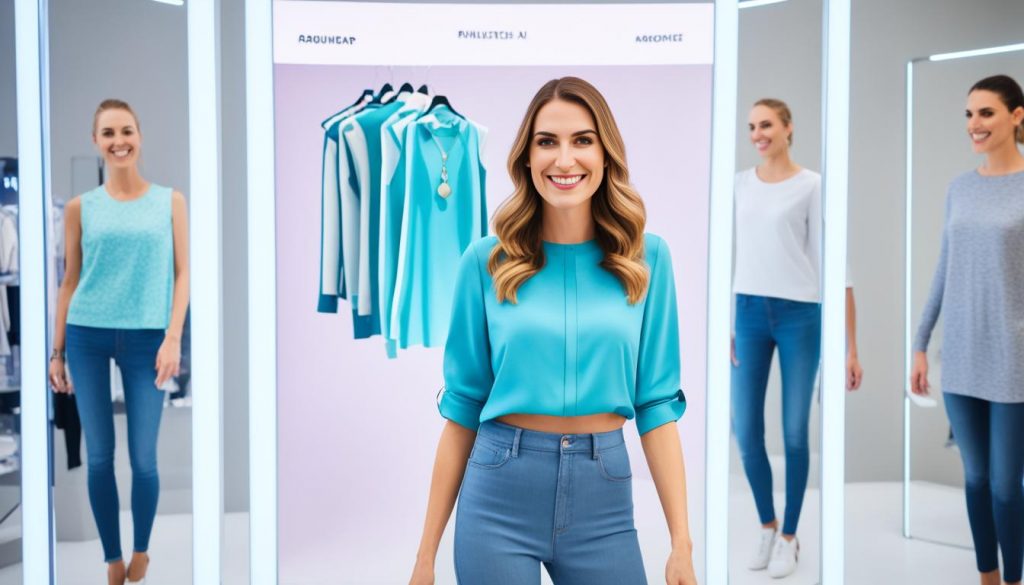
AI is changing how products are designed, making perfect plans. Stylumia and Repsketch let brands predict what people want and create new products.
AI tools like Vmake and Artiphoria make marketing and designing easier. A lot of people in Europe want more AI in fashion. They like brands that use AI for being unique and green.
| AI Application | Brand Example | Benefit |
|---|---|---|
| Personalized Shopping Experience | Louis Vuitton, Burberry | Customized interaction, higher customer satisfaction |
| Trend Prediction | Gucci | Forecasting and shaping future fashion trends |
| Supply Chain Optimization | Luxury Fashion Industry | Reduced waste, accurate demand prediction |
| AR Try-Ons | Dior | Virtual product trials, better purchase decisions |
| Digital Mirrors | Nordstrom | AI-powered accessory recommendations |
| Counterfeit Detection | Luxury Brands | Image recognition, protect brand integrity |
| Data Analytics | Brandwatch, Power BI | Insights from social media postings, CRM data |
| Generative Design | Generative AI | Rapid design exploration, optimized outcomes |
In conclusion, AI is merging smoothly with luxury fashion. The future looks promising for AI-driven brands. An 18% revenue increase in eco-friendly fashion is just a start. With AI, fashion is not just about new looks but new expectations and innovation.
Enhanced Shopping Experiences with AI: Creating a New Norm in Fashion Retail
We are at the forefront of a major change in fashion retail, thanks to AI fashion stylists and AI-driven fashion customization. These developments are reshaping how we choose and buy clothes and accessories. Now, shoppers can enjoy a tailored selection of items that match their personal taste.
In physical stores, AI is making shopping more interactive. It changes the way we experience fashion in person.
Personalized Merchandising in Real-Time
AI has revolutionized fashion retail with real-time personalized experiences. Gone are the days of general offerings. Now, each shopper receives custom selections designed just for them.
This move towards personalization isn’t just a nice-to-have; it’s essential. An impressive 80% of shoppers want stores to cater to their unique preferences.
Facilitating Smarter Purchases and In-Store Engagements
AI technology is also enhancing how we shop in stores. It helps salespeople give better recommendations. This leads to happier customers making smarter purchase choices.
By combining human insight and AI, retail becomes more personal and effective. Retailers offering personalized recommendations can see much bigger returns compared to general promotions.
| Statistic | Impact |
|---|---|
| Personalized Experiences Demand | 80% of US adults want personalized retail experiences |
| Sales Uplift from Personalization | 1-2% increase for grocery, higher for other retailers |
| Marketing and Sales Cost Reduction | 10-20% decrease with successful personalization |
| Boost in Customer Satisfaction | 20% increase with positive experiences |
| Loyalty Program Success | Sephora’s Beauty Insider members contribute to 80% of transactions |
| Executives’ Inspiration from AI | 96% inspired by capabilities like generative AI for retail |
The combination of personalized shopping recommendation algorithms and diverse consumer needs is leading to a new era in retail. Shops can now offer more relevant shopping experiences. This close connection between AI customization and consumer interest is helping businesses grow. We are committed to providing a highly personalized and efficient shopping experience.
The Impact of AI Fashion Stylist on Consumer Decisions
Generative AI is reshaping fashion, according to industry forecasts. It could boost the apparel and luxury sector’s profits by $150 to $275 billion in just 3 to 5 years. Brands that personalize their offerings could see a revenue increase of up to 40%. This is compared to those that don’t.
AI fashion stylists have led to sales conversion rates jumping by 60% to 70% in luxury boutiques. This is thanks to better client serving and insights from AI. Companies like CopyAI and Jasper AI are leading the way by using generative AI for personalized marketing.
Generative AI is also redefining product design. It allows for the creation of countless styles with ease. This results in a diverse marketplace that meets consumer needs better. Beyond design, AI enhances customer experience by making interactions more personal and responses faster.
In this new era, luxury brands are finding that making things more personal is key. This doesn’t just momentarily boost sales. It builds a loyal customer base. Imagine a shopping experience customized to each person’s likes and history. Generative AI is making this a reality in the fashion world today, not just in the future.
| Statistic | Detail | Outcome |
|---|---|---|
| Revenue Increase | Personalization | Up to 40% higher revenues |
| Conversion Rates | Luxury Boutiques | 60% to 70% via clienteling |
| Innovation | Product Development | Vast styles exploration |
| Brand Loyalty | Hyperpersonalization | Boosted sales conversions |
We are living in an AI renaissance. This blend of technology and creativity is not just changing fashion. It’s setting the stage for a future where our clothes are more in tune with us, thanks to generative AI and its pioneers.
Unlocking Advanced Shopping Features with AI Fashion Personalization
We’re on an exciting journey in retail, with AI transforming fashion shopping. The AI market is now worth $142.3 billion, showing the huge investment in AI. Today, AI-powered fashion personalization is a real game-changer, making shopping better every day.
AI’s impact is huge, with Amazon using it to boost sales significantly. In fact, AI recommendations bring in about 35% of Amazon’s sales. This success shows how AI fashion stylists are crucial in making shopping personal.
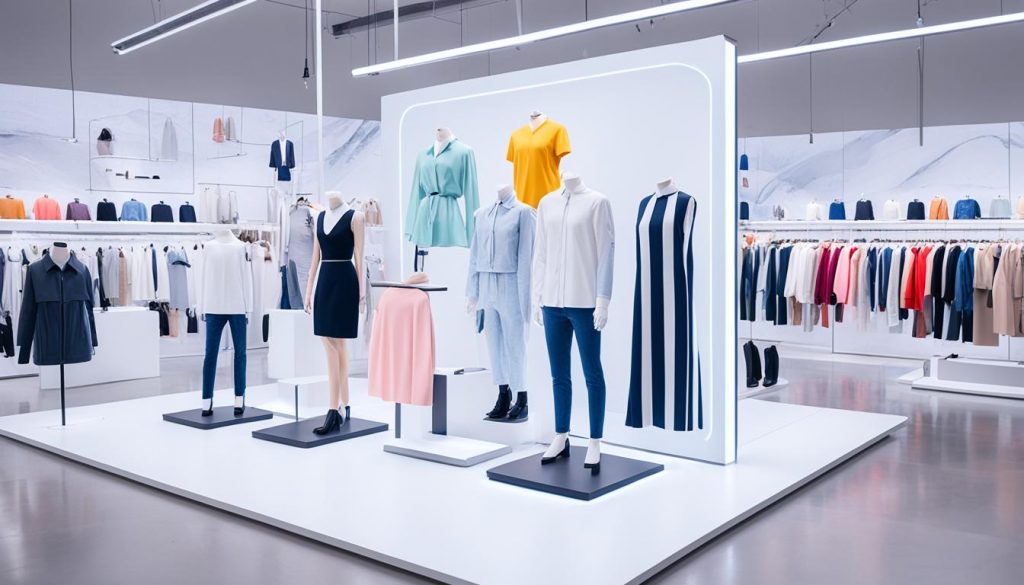
Companies like Stitch Fix are masters at using AI for personalized fashion. They use machine learning to understand what customers like. This leads to happier customers and more loyalty to the brand.
Visual Search and Virtual Try-Ons
In the fashion world, AI is creating amazing features. AI-driven fashion customization includes visual search and virtual try-ons. These features have changed how we find and buy clothes, making it more interactive and personal.
Generative AI: Redefining Trendsetting and Design
Generative AI is taking fashion to new heights, making instant, personalized designs. Walmart and Nike are also using AI for better forecasting and inventory management. For example, Walmart used AI in 2020 to forecast better, reducing costs and improving satisfaction. Nike’s 2019 purchase of Celect was about enhancing direct-to-consumer sales with AI.
Working with an AI fashion stylist connects customers with clothes that truly fit their style. Research shows people prefer brands that offer relevant recommendations. This isn’t just personalized shopping; it’s building a relationship based on individual style and preferences.
In retail, we aim to offer smarter, more adaptive shopping experiences. With AI-powered fashion personalization, we exceed customer expectations. We provide unmatched customization and convenience in fashion retail’s changing world.
Transforming E-Commerce with Personalized Shopping Recommendation Algorithms
The rise of e-commerce is closely linked with personalized shopping recommendation algorithms. Thanks to fashion personalization software and AI-driven fashion customization, online shopping now adapts to each buyer. Let’s explore how these algorithms are changing shopping for the better.
From Browsing to Buying: Guiding the Consumer Journey
Retail success depends on turning interest into purchases. The personalized shopping recommendation algorithm acts like a digital helper for shoppers online. Imagine this: 7% of website visits use these recommendations. They account for 24% of orders and 26% of the revenue. This shows AI’s power in matching products to what consumers want, making shopping easier and more enjoyable.
Boosting Revenue through Personalization Strategies
In today’s market, customers may leave if they don’t get personalized service. A total of 52% might switch brands without personal touches. We use every tool, including fashion personalization software, to connect deeply with customers. Ignoring AI’s power means risking the loyalty of the 69% who desire new items and the 71% using mobiles for shopping.
| Retail Metric | Without Personalization | With Personalization |
|---|---|---|
| Conversion Rate | Baseline | Increased by up to 2.5% |
| Average Order Value | Static | Up by 1.5% to 11% |
| Revenue Growth from Recommendations | N/A | Jumped by 28% |
| Customer Engagement | Generic Experience | True 1-to-1 Interaction |
Look at the German store engelhorn, which grew after using Einstein Product Recommendations. Also, Icebreaker made more money with Salesforce Commerce Cloud. These successes show the value of AI in creating tailored online shopping experiences. They prove personalization isn’t just a buzzword—it’s key to retail success.
Integrating Fashion Personalization Software into Your Brand’s Strategy
Today’s fashion industry is changing fast. Brands must use fashion personalization software to stay ahead. Generative AI is expected to add up to $275 billion in profits for clothing and luxury brands soon. To meet consumers’ demands for personalized shopping, brands are turning to AI-driven fashion customization.
Key Considerations for Implementing AI into Fashion Retail
Adding machine learning for fashion is more than updating tech. It’s about knowing what customers want. AI analyzes data to offer products that fit each shopper’s style. Brands using AI for client strategies see up to a 70% increase in sales. CopyAI and Jasper AI show how personalized marketing can grow revenue.
Case Studies: ROI and Efficiency Increases
Looking at case studies, the benefits of fashion personalization software are clear. In luxury markets, AI boosts efficiency and customer satisfaction. It enables real-time updates to shopper profiles, making sure recommendations are always relevant. This leads to better shopping experiences and higher sales. It shows a big move towards smarter, customer-focused retail.
Conclusion
In the world of retail, artificial intelligence (AI) is making a big splash. For example, 58% of shoppers have noticed better online shopping with AI, Adobe reports. Additionally, 66% look forward to more personalized shopping based on their past choices. This shows that shoppers want shopping that is both tailored to them and efficient.
About 52% of buyers are ready to use AI for buying clothes. Virtual try-ons are popular, with 71% liking this option. This willingness to trust AI opens new doors. It makes shopping easier and more personal, thanks to AI’s insights.
Looking at AI’s bigger picture in retail shows it’s here to stay. By 2028, AI in retail could be worth over $31 billion. AI makes shopping faster with features like personalized product filters, which 40% of consumers anticipate. Moreover, AI can help retail be more sustainable. This ranges from tracking emissions to encouraging recycling. Companies like Sandstar, Amazon, and Walmart are using AI to improve how they work. This leads to better customer service, sales, and how well they operate. Even companies like Netflix and Zara are showing how AI can change the way they handle inventory and interact with customers.
AI is now a key part of creating engaging shopping experiences. It’s helping 50% of marketers enhance how they work, and 51% improve customer service. AI’s role in retail is growing along with the increase of global e-commerce. The National Retail Federation supports AI. They see it as a way to drive forward how we sell and keep our businesses strong. AI isn’t just a future thought. It’s actively shaping our sales and sustainability efforts in retail today.
FAQ
How is AI used to personalize fashion and enhance shopping experiences?
What are the benefits of personalized shopping recommendation algorithms?
Can AI in retail adapt to real-time consumer behavior?
What is the role of machine learning in personalized fashion?
What success stories highlight the effectiveness of AI in retail?
How do visual search and virtual try-ons redefine online shopping experiences?
What is generative AI and how does it impact fashion design?
Why is AI-driven fashion customization important for retail?
What considerations should brands have when integrating fashion personalization software?
How do case studies demonstrate the ROI and efficiency of AI in fashion retail?
Source Links
- https://techpacker.com/blog/design/how-artificial-intelligence-is-revolutionizing-the-fashion-industry/
- https://www.forbes.com/sites/neilsahota/2024/03/15/weaving-elegance-with-intelligence-how-luxury-brands-are-embracing-ai/
- https://www.retaildive.com/news/generative-artificial-intelligence-clothing-purchases-consumer-use-cases/711834/
- https://www.thinkwithgoogle.com/intl/en-emea/marketing-strategies/automation/artificial-intelligence-and-fashion/
- https://www.mckinsey.com/industries/retail/our-insights/generative-ai-unlocking-the-future-of-fashion
- https://www.nytimes.com/2023/09/06/business/lily-ai-retail-shopping.html
- https://www.voguebusiness.com/technology/unfolding-ai-new-worlds-of-fashion-google-white-paper
- https://www.techpacker.com/blog/design/how-artificial-intelligence-is-revolutionizing-the-fashion-industry/
- https://www.mckinsey.com/industries/retail/our-insights/personalizing-the-customer-experience-driving-differentiation-in-retail
- https://www.forbes.com/sites/jillstandish/2023/05/25/what-generative-ai-means-for-retail/
- https://www.cmswire.com/ecommerce/how-aiml-transforms-ecommerce-customer-experiences/
- https://www.salesforce.com/products/commerce-cloud/resources/personalized-shopping/
- https://blog.emb.global/ai-driven-personalization/
- https://www.retaildive.com/news/generative-artificial-intelligence-clothing-purchases-consumer-use-cases/
- https://www.weforum.org/agenda/2023/01/here-s-how-artificial-intelligence-benefit-retail-sector-davos2023/
- https://medium.com/@seekmeai/how-ai-impacted-e-commerce-personalization-recommendations-and-customer-experience-cdb7ec64faf8
Latest News
How Collaboration Shapes Consumer Preferences in Sportswear
Navigating Consumer Rights and Warranties in Sportswear Sales
Artificial Intelligence in Fashion Forecasting and Trend Analysis
The Shift Towards Inclusive Sizing in Sportswear: Consumer Reactions
The Global Expansion of Luxury Sportswear Brands
From Sketch to Gym: The Design Process of Fashionable Sportswear
Understanding the Role of Trade Associations in Sportswear Compliance
How Economic Trends Influence Consumer Spending on Sportswear
Learning from Successful Global Market Entries
Best Practices for Managing Cross-Cultural Teams
Using Technology to Fight Counterfeit Fashion Products
Carbon Nanotube Fabrics for Superior Strength and Flexibility
The Growth of Fitness Tracking Apparel in Health and Wellness
Exploring the Influence of Social Proof in Sportswear Purchasing
Strategies for Managing Compliance in a Multinational Operation
Trends in Global Footwear: Performance Meets Lifestyle
The Role of Artificial Intelligence in Tracking Supply Chain Operations
Evaluating the Success of Sportswear Collaborative Projects
Evaluating the Potential of Emerging Markets
Global Shifts Towards Gender-Neutral Sportswear
Share This Article
Latest Articles


